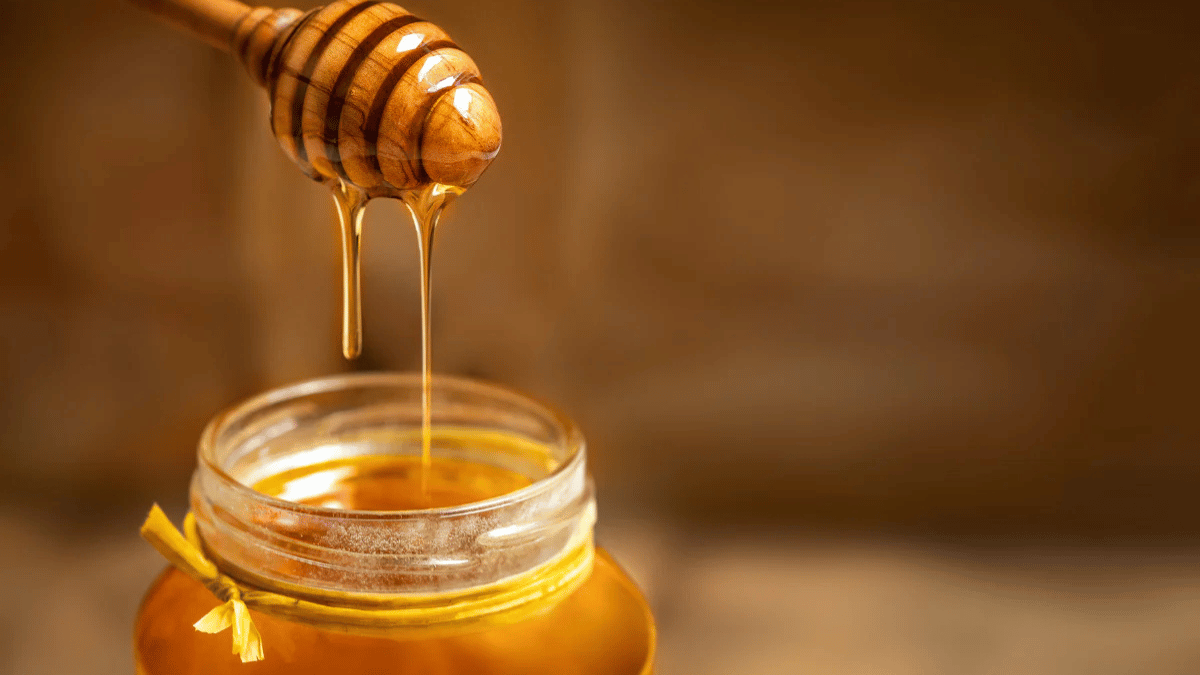
Honey: Nature’s Golden Healer with Sweet Benefits
Honey, often dubbed “liquid gold,” is more than just a natural sweetener. This golden nectar has been celebrated for centuries not only for its delightful taste but also for its impressive medicinal properties. From soothing sore throats to aiding digestion and skin healing, honey stands as a testament to nature’s pharmacy.
1. What Is Honey Made Of?
According to the National Honey Board, honey is a natural substance produced by bees from the nectar of flowers. It consists primarily of sugars like fructose and glucose, along with water, vitamins, minerals, enzymes, and antioxidants. The composition may vary depending on the floral source, processing, and storage conditions.
2. A Nutritional Powerhouse in a Spoonful
Healthline explains that raw honey contains trace amounts of essential nutrients, including iron, zinc, potassium, and B vitamins. What makes honey particularly valuable is its richness in bioactive plant compounds and antioxidants, such as flavonoids and phenolic acids, which contribute to its health-protective properties.
3. Medicinal Uses of Honey
Wound Healing: Mayo Clinic highlights that medical-grade honey, particularly Manuka honey, is used in clinical settings to treat wounds and burns due to its antibacterial and anti-inflammatory properties.
Cough Suppressant: According to WebMD, honey may be just as effective, if not more, than over-the-counter cough syrups. A spoonful of honey before bed can reduce nighttime coughing and improve sleep in children over the age of one.
Digestive Aid: Raw honey contains prebiotics, which nourish good gut bacteria. Some studies suggest it may help with conditions like ulcers and gastroenteritis.
4. Choosing the Right Honey
When shopping for honey, opt for raw and unfiltered varieties, as they retain more nutrients and beneficial compounds. Processed or ultra-filtered honey often lacks the enzymes and antioxidants present in raw forms. As recommended by Healthline, Manuka honey—native to New Zealand—is especially valued for its potent antibacterial effects, though it’s significantly more expensive.
5. Is Honey Safe for Everyone?
While honey offers many benefits, Mayo Clinic and WebMD caution against giving it to infants under one year of age due to the risk of botulism. Additionally, although honey is healthier than refined sugar, it should still be consumed in moderation because of its high sugar content.
6. Creative Uses for Honey
Honey is not only a health tonic but also a culinary treasure. Use it to:
Sweeten tea or coffee naturally.
Add a twist to salad dressings.
Glaze roasted vegetables or meats.
Drizzle over yogurt or pancakes.
It also serves as a beauty staple in DIY face masks and lip balms thanks to its moisturizing and antimicrobial properties.
Honey is a delicious, versatile, and powerful natural product with numerous applications in health, beauty, and cooking. Drawing upon the collective insights of major health authorities, it's clear that incorporating quality honey into your diet and routine can yield sweet benefits. Just remember, moderation is key.













